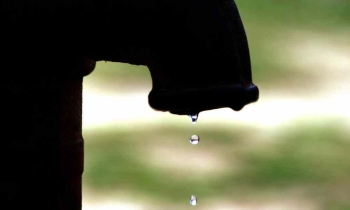WASHINGTON — It has been a week since Al Jazeera English went on the air and Dave Marash, the news channel’s Washington-based anchor, is feeling like the “belle of the ball.”
Everyone he meets is curious about his new job and everyone wants to hear what it is like to work for an outfit that has revolutionized television news and that is shunned by many Americans as a mouthpiece for anti-US sentiment in the Muslim world.
Among those who bombard him with questions are his counterparts in the US media who are keen to hear about the new kid on the block.
“I was at the annual banquet of the Committee to Protect Journalists Tuesday, probably the biggest gathering of the leadership of American journalists, and I was the belle of the ball,” Marash said. “That’s because everybody in American journalism is at worst curious and at best really interested, and even admiring, of what Al Jazeera English is all about.”
For Marash, 64, a lifelong and well-respected broadcast newsman who formerly worked for the American network ABC, the hallmark of Al Jazeera English (AJE) is to bring a non-Western perspective of world events to viewers and to challenge the global news supremacy of CNN and the BBC.
“All of our competitors, CNN International, BBC World, and the American networks, concentrate about 80 percent of their news gathering resources in Western Europe and North America,” he said, sitting in his small office at the network’s Washington hub. “Al Jazeera English is going to concentrate about 80 percent of our news gathering outside of North America and Western Europe.”
He said that AJE’s goal was to offer a more diverse, broader, and deeper alternative to the traditional fare served by competing networks.
“Where CNN might do 15 to 20 stories in half-an-hour, we’re more likely to do five or seven,” he said.
But while the 24-hour Qatar-based network has reached more than 80 million households worldwide since its launch November 15, American audiences have been left in the cold and are only able to access the channel on the Internet.
Despite intensive efforts, AJE has so far been unable to convince any US or Canadian cable or satellite television companies to carry it.
Marash said that it would be naive to think that there was no “political component” involved.
“There is a minute right-wing conspiracy to try and pressure cable companies and satellite dish distributors not to offer us and I think that plays some role,” he said. He added that he hoped that within a year Americans would be able to watch AJE.
When questioned about working for a network whose Arab-language version sometimes airs hate speech and anti-Semitic views, Marash, who is Jewish, says that critics are missing the bigger picture and stresses that “offensive speakers” never go unchallenged on air.
“One of the really important strategies in warfare … is ‘know your enemy’,” he said. “So if you take us at our worst we will enable America to know its enemies.”
As for members of the US administration who are leery of the network, including former defense secretary Donald Rumsfeld who once denounced the Arab-language Al Jazeera as a propaganda mouthpiece and as “vicious, inaccurate, and inexcusable,” Marash asks only that they watch the channel before jumping to conclusions.
“I am very confident that anybody, including Donald Rumsfeld, who looks at us with open eyes will come away with their fears and anxieties relieved,” he said. “This is a news organization, not an organization of political or cultural indoctrination.”









